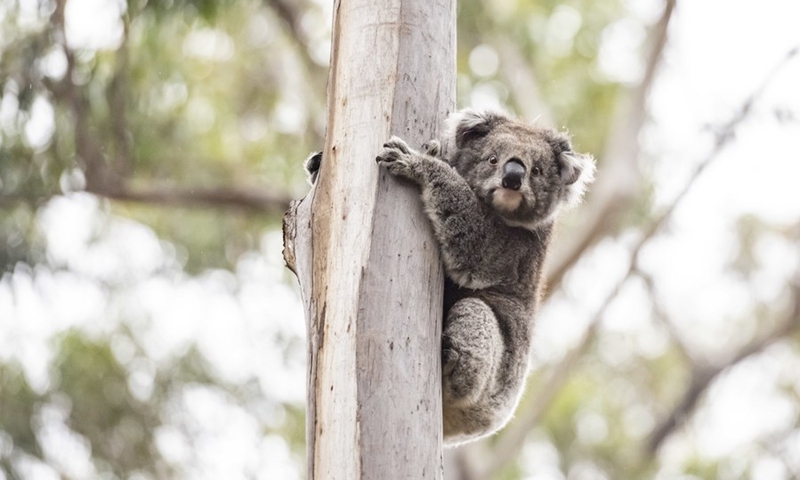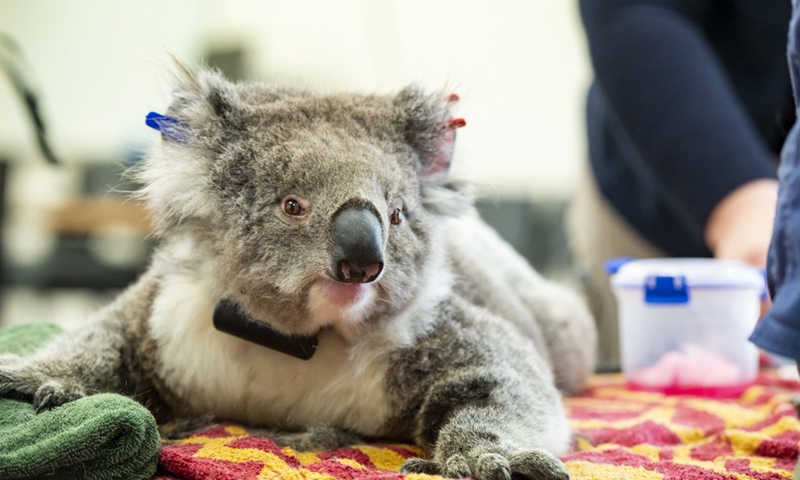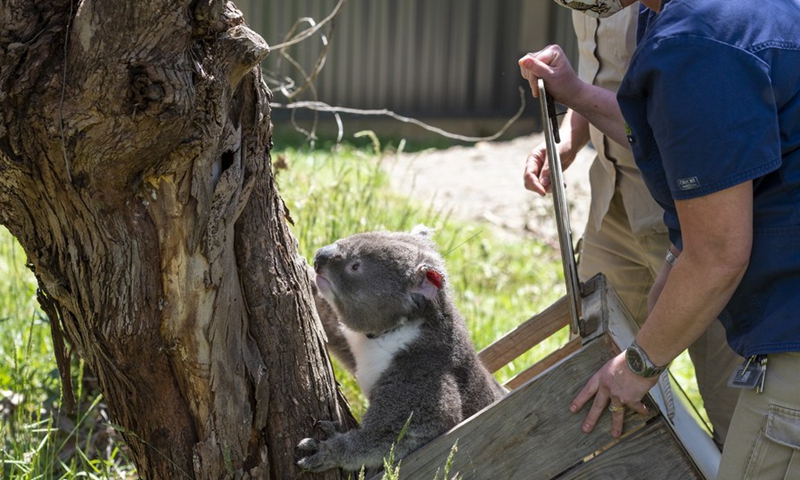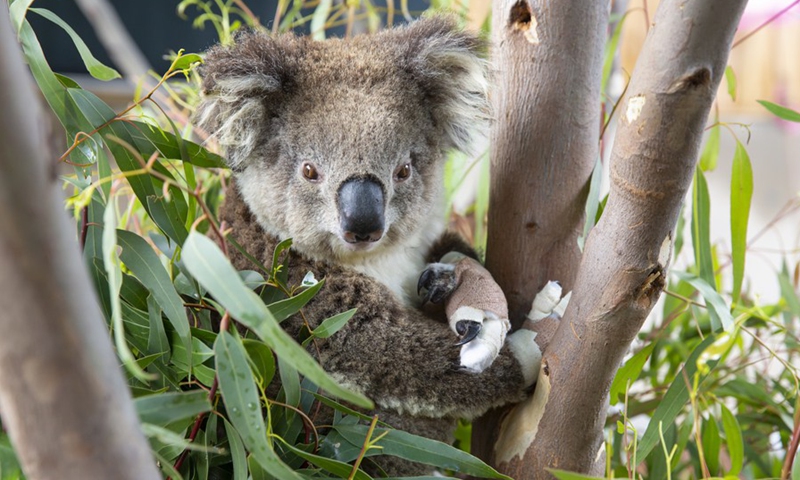
Photo taken on Dec.6, 2020 shows a released Koala at site near Mallacoota, Victoria, Australia.(Photo: Xinhua)

Photo taken on Dec. 6, 2020 shows a female Koala with a radio tracking collar around her neck being health checked in Melbourne, Australia.(Photo: Xinhua)

Photo taken on Dec. 6, 2020 shows a koala back to wild in Healesville Sanctuary, Australia.(Photo: Xinhua)

Photo taken on Dec.6, 2020 shows a koala with bandaged paws, sitting amongst gum leaves, near vet clinic at Melbourne Zoo, in Melbourne, Australia.(Photo: Xinhua)
After months of treatments and recoveries, koalas severely injured in Australia's devastating bushfires last summer have finally returned home.
Fourteen koalas have been released into bushland at sites in Victoria's East Gippsland region, close to where they were originally found over the past month, with the final group of eight released over the past weekend, Zoo Victoria said in a statement on Monday.
The koalas which were rescued after the blazes in January this year, underwent multiple surgeries for severe burns and many months of follow-up treatment.
Following extensive treatment, they had also been "rewilding" by building up their strength, fitness and climbing abilities at a large enclosure at Phillip Island Nature Parks and Healesville Sanctuary.
Zoos Victoria senior veterinarian Leanne Wicker said it was special to see the koalas that have been through so much finally return to the wild.
"I will never forget the injuries and trauma that first confronted us in the wildlife triage units in January," Wicker said.
"Sadly, there were many animals that we couldn't save, but we gave our all to treat the badly burnt paws, noses and ears while monitoring for internal injuries."
Zoos Victoria senior veterinarian Leanne Wicker said it was special to see the koalas that have been through so much finally return to the wild.
"I will never forget the injuries and trauma that first confronted us in the wildlife triage units in January," Wicker said.
"Sadly, there were many animals that we couldn't save, but we gave our all to treat the badly burnt paws, noses and ears while monitoring for internal injuries."
